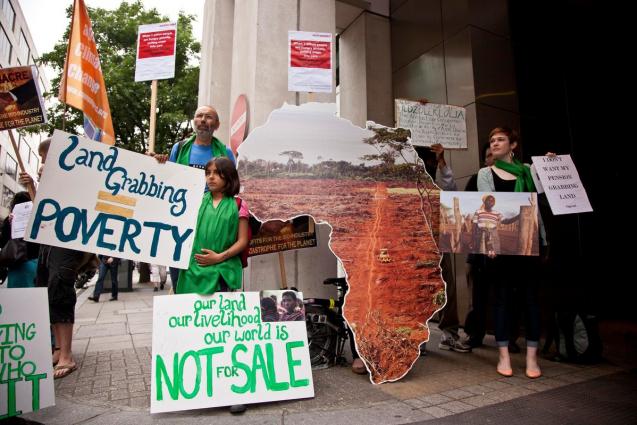When you hear the word “apartheid”, you probably think of Nelson Mandela fighting against a repressive South African regime. In fact, the word literally means “the state of being apart” in the Afrikaans language.
At this moment in America, and around the world, the gap between the most wealthy and those living in the deepest poverty continues to grow, and the reality of the rich and the reality of the poor can feel like two different worlds altogether. So is the growing wave of inequality sweeping across the globe actually a form of global apartheid?
The abolitionist Harriet Tubman once said:
“If there is a promise of a storm, and you want change in your life, walk into it.
“If you get to the other side, you will be different.
“But if you want change in your life, and you are avoiding the trouble, you can forget it.”
The “if” in this quote always gives me pause. What if we don’t make it to the other side?
Make no mistake, America is in the middle of a storm. The #BlackLivesMatter movement, the Syrian refugee crisis, war, climate change, and vibrant political debates, all compete for our attention everyday on the front pages of newspapers across the country, and in our Facebook and Twitter feeds.
Growing inequality and high levels of unemployment here in the US and around the world, together with other man-made crises, show that we’re living in a context of global apartheid – a system of inequality that dictates access to wealth, power, and human rights based on race and place.
The elites in this and other wealthy countries control the global decision making powers which uphold and preserve the system that works in their favor.
Failure to “make it” means that income inequality will continue to grow and with it, the ranks of the unemployed. Our changing climate will cause crops and livestock to die, escalating hunger, and forcing more people to migrate to survive. The scramble for scarce resources, often driven by the flexing of military muscle, will generate more conflict, and with it more refugees.
Cities that swell due to migration will become more dangerous places. And women will increasing bear the brunt of these growing levels of poverty and inequality. If we don’t begin to protect women’s rights and build their economic empowerment, violence against women and girls will only increase.
All of this will happen as the richest people in our societies build higher and higher walls to protect their wealth and power. But at some point they will wake up to the reality that the people and planet they exploited are getting burned, and we all will have lost.
Sounds too apocalyptic? Just think about it for a minute.
The good news is that if we face this storm together, we can end this global apartheid. If we act now, using the opportunities that we’re presented with, we can turn a downward spiral around, and build policies that are mutually reinforcing and that close the gap between those with power and privilege, and people living in poverty. In the U.S. these opportunities include the Pope’s visit, the United Nations agreeing the Sustainable Development Goals, and the ongoing U.S. election process.
The Pope has issued a call to action on the climate – now is the time for global leaders to go stop taking baby steps on cutting carbon emissions and deliver bold action. Poor communities are being hit hardest by a climate crisis that they did not cause, and rich countries must provide money to help them adapt to the impacts of climate change.
The United Nations has set a series of ambitious goals to end poverty. But more can be done to tackle growing inequality and make sure that growth benefits everyone. By investing in the economic empowerment of women, young people and the rest of society, nations can make their cities safe for women and resilient to disasters. Investing in climate resilient sustainable agriculture can build food secure communities worldwide.
U.S. presidential candidates talking about economic inequality must recognize that this is only the start. They must address social inequality and make commitments to root out racism in our systems and processes. #BlackLivesMatter and other global movements can lead the way in the fight to dismantle global apartheid.
Like it or not, the United States and the wider world needs dramatic change – and we need it fast. So bring on the storm!
Let’s join with #BlackLivesMatter, with feminist movements, farmers’ collectives, economic and social justice seekers. Just as there were white activists in South Africa and around the world that joined the anti-apartheid movement, there are people of extreme wealth among us who can fuel the struggle to end global apartheid. Together, let’s make it to the other side of this storm and change the trajectory of the world we live in from one that sets us apart, to one where we see our interconnectedness as people and with our planet.
